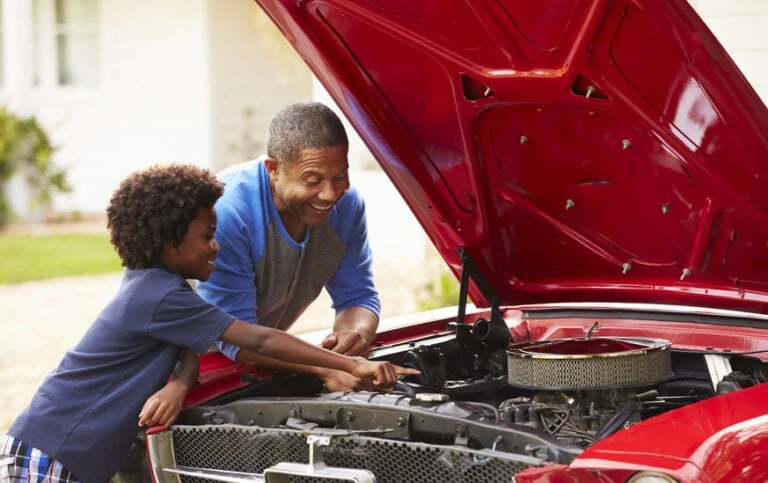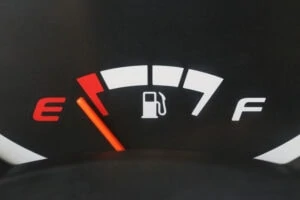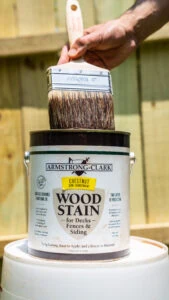Driving habits, vehicle maintenance are keys to reducing gas bills
The high cost of fuel is upon us, dramatically impacting the cost of living for millions of consumers. Rising fuel costs are causing many drivers to look for new ways to save money at the pump. Driving habits and vehicle maintenance can increase fuel mileage and mean substantial savings in the long run.
You can start by simply taking care of your vehicle. A simple tune up can increase fuel mileage significantly, according to Bryan Gregory, Director of Consumer Education for Advance Auto Parts (NYSE:AAP). Below are some suggestions that can assist with saving gas during the day-to-day commute, as well as make a significant impact as the summer travel season kicks off this weekend.
1) “Start with the air filter,” Gregory said. “It’s inexpensive
and very easy to change. Similar to jogging your favorite
track with a dish towel over your mouth a dirty air filter is
one of the most impacting contributors to poor fuel mileage.
Your engine needs to breathe to create maximum power and
efficiency. You should replace your air filter every 7,500
miles unless otherwise specified by the manufacturer.” Some
high performance air filters flow much more air and last for a
million miles.
2) Proper tire pressure is the next largest influence on fuel
mileage. Check the drivers’ side door post to see exactly what
the tire pressure should be, then check all four tires weekly
for best results. “Tire air pressure is critical, Gregory
said. Every pound per square inch that a tire is under-
inflated results in as much as a six percent loss in fuel
efficiency. Tires that are under inflated create dramatically
more rolling resistance, similar to pedaling your bike up a
hill with a low rear tire, it simply requires more work.
Checking and refilling tires could not be easier, yet
incredibly meaningful in the fuel economy equation.”
Vehicle maintenance should always be a priority, especially as
many of us work to extend vehicle life, but some of the most
important factors in reducing fuel consumption depend solely
on the driver.
3) Use synthetic oil. “Synthetic engine oil is comprised of
smaller molecules that reduce internal engine friction,
lubricate better, and reduce engine operating temperatures,
all creating a more efficient power process and helping with
fuel mileage,” Gregory says.
4) “You definitely want to avoid idling when possible because
you get zero miles to the gallon when sitting still,” Gregory
said. “Also, be sensible about how long you warm up the car.
For most cars and trucks, 30 to 45 seconds of warm-up time is
sufficient.”
5) Reducing a vehicle’s load by eliminating excess cargo, such
as extra tires, equipment, bike or ski racks, saves gas also
because for every 200 pounds of extra weight in a vehicle,
fuel mileage is reduced by one mile per gallon.
6) Keep fuel injectors clean by using a injector cleaners once
or twice a year. When the fuel injector nozzle gets debris and
buildup on it, it doesn’t spray the fuel charge as it was
designed to. A simple injector cleaner added to the fuel tank
a few times each year can help keep the injectors clean and
efficient.
7) Be sure your vehicle is in alignment. If it pulls to the
right or to the left, it likely needs an alignment, or
possibly some suspension work. When all four wheels are
traveling down the road out of alignment, rolling resistance
is created, not to mention rapid tire wear. Get the vehicle
tracking straight and it will help protect your investment,
enhance safety, and improve fuel mileage.
Your owner’s manual should include a recommendation for the octane level that is best for your vehicle. If in doubt, always resort to using an 87 level octane. Higher octane also does not provide more horsepower or fuel economy, so don’t waste money buying a higher octane than needed. One thing to keep in mind though, if you have modified your engine for higher horsepower, the octane requirement may be higher than the manufacturer’s recommendation.
Advance Auto Parts and its well-trained, knowledgeable Team Members can help customers with all of the parts and products needed to perform gas-saving do-it-yourself projects. ASE-certified experts and the Company’s consumer education program, featuring a “How To Save Gas” video clinic, and many more, can be found at https://www.AdvanceAutoParts.com. Click on the “Know-How” section of the website to view any of the free video clinics that will help you maintain your vehicle and save money doing so.




